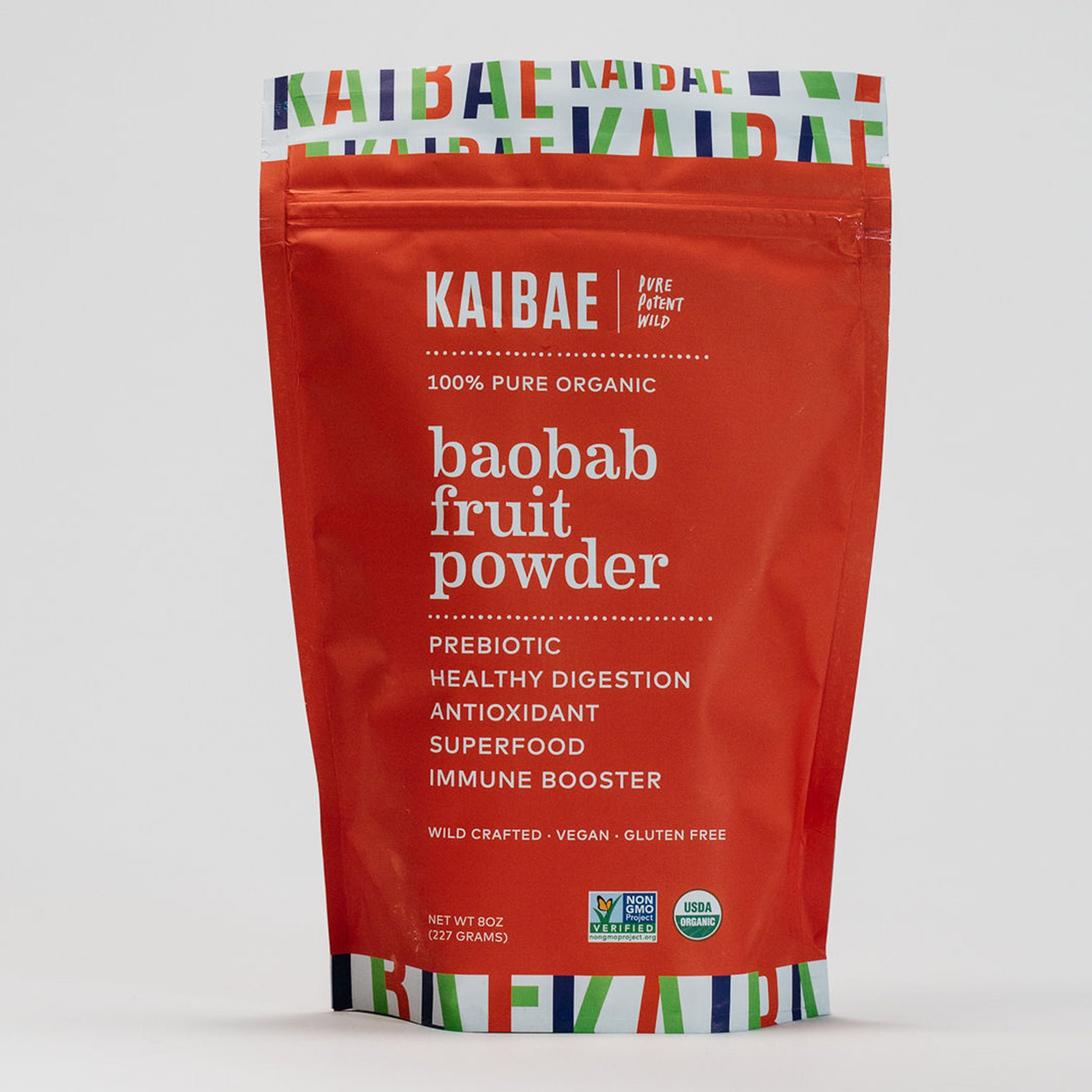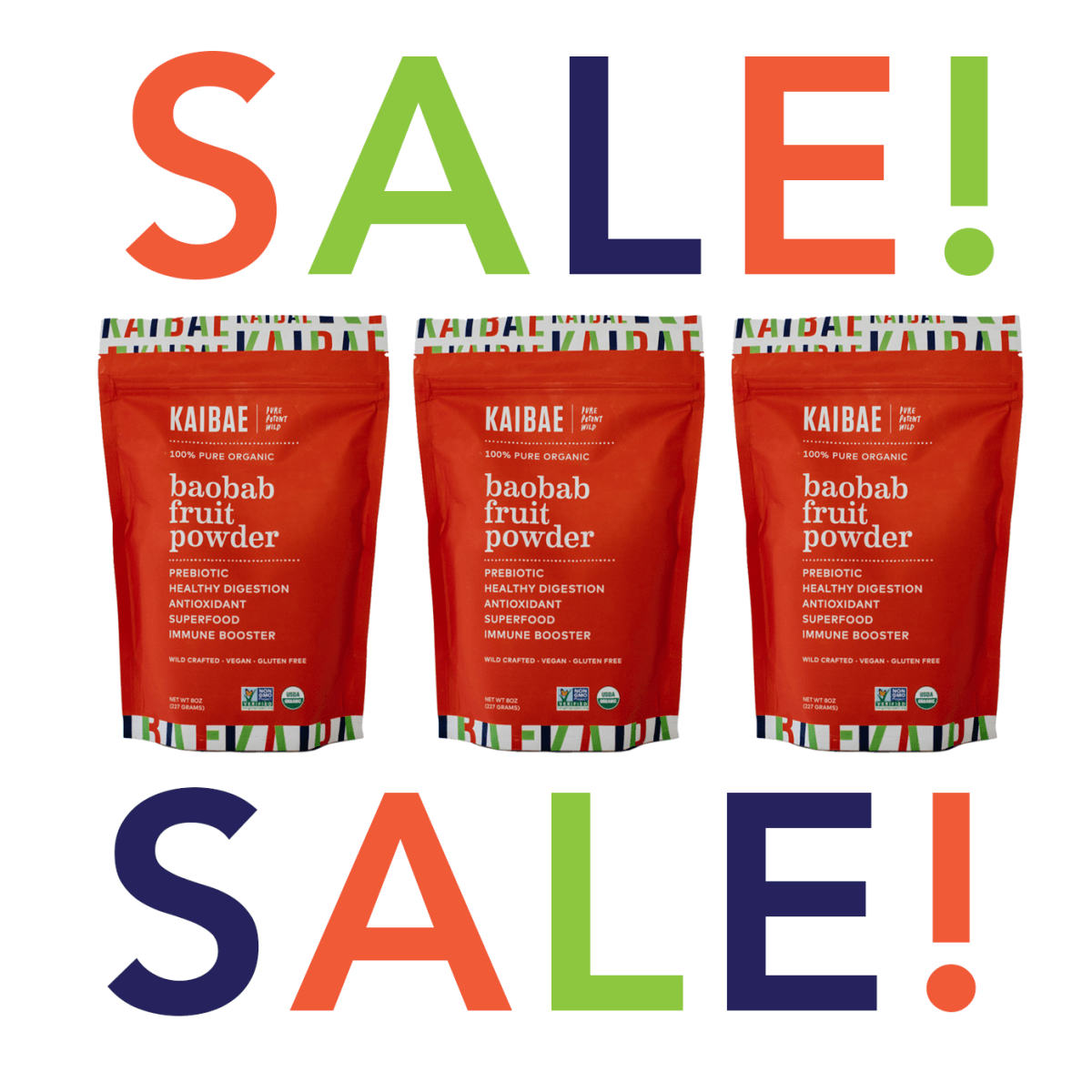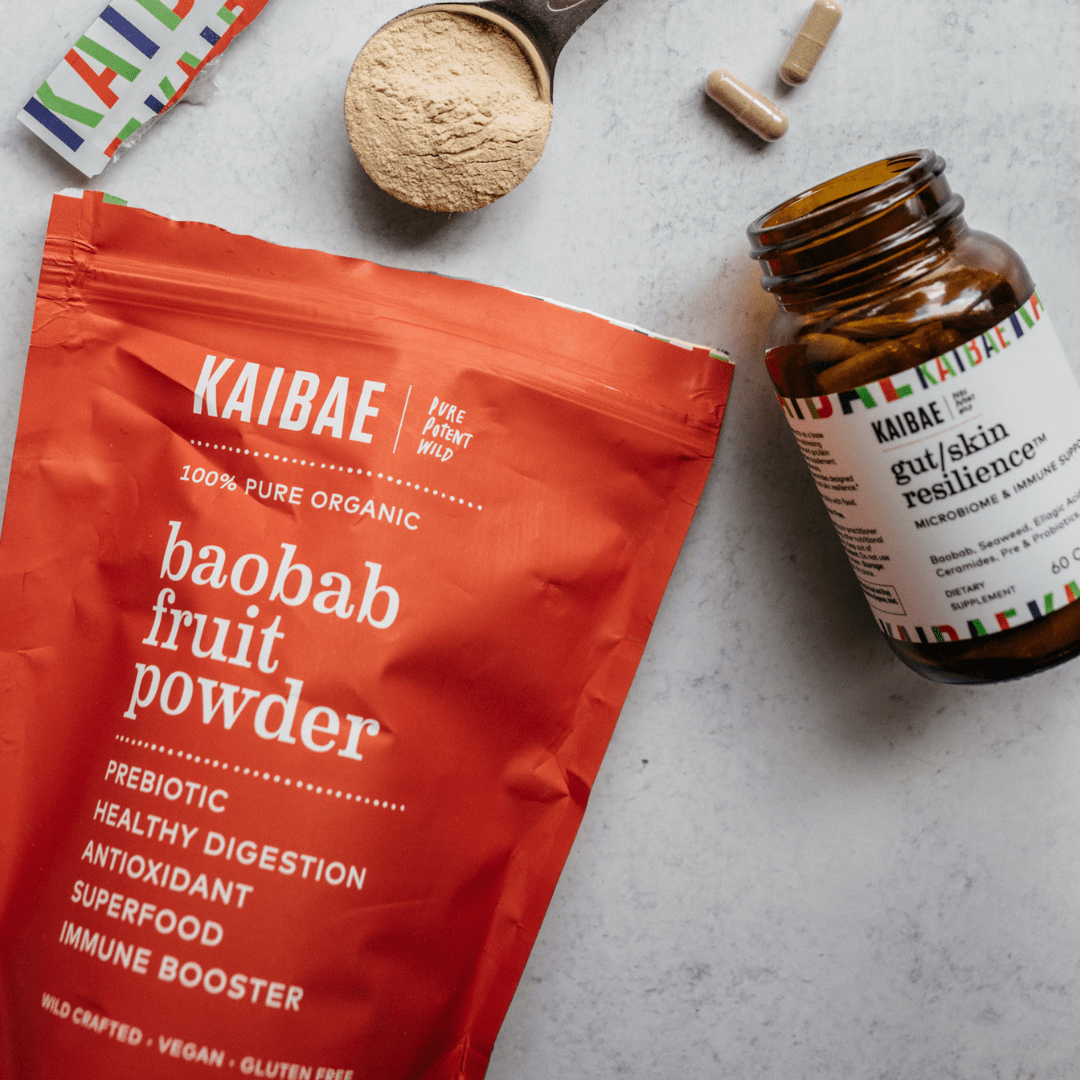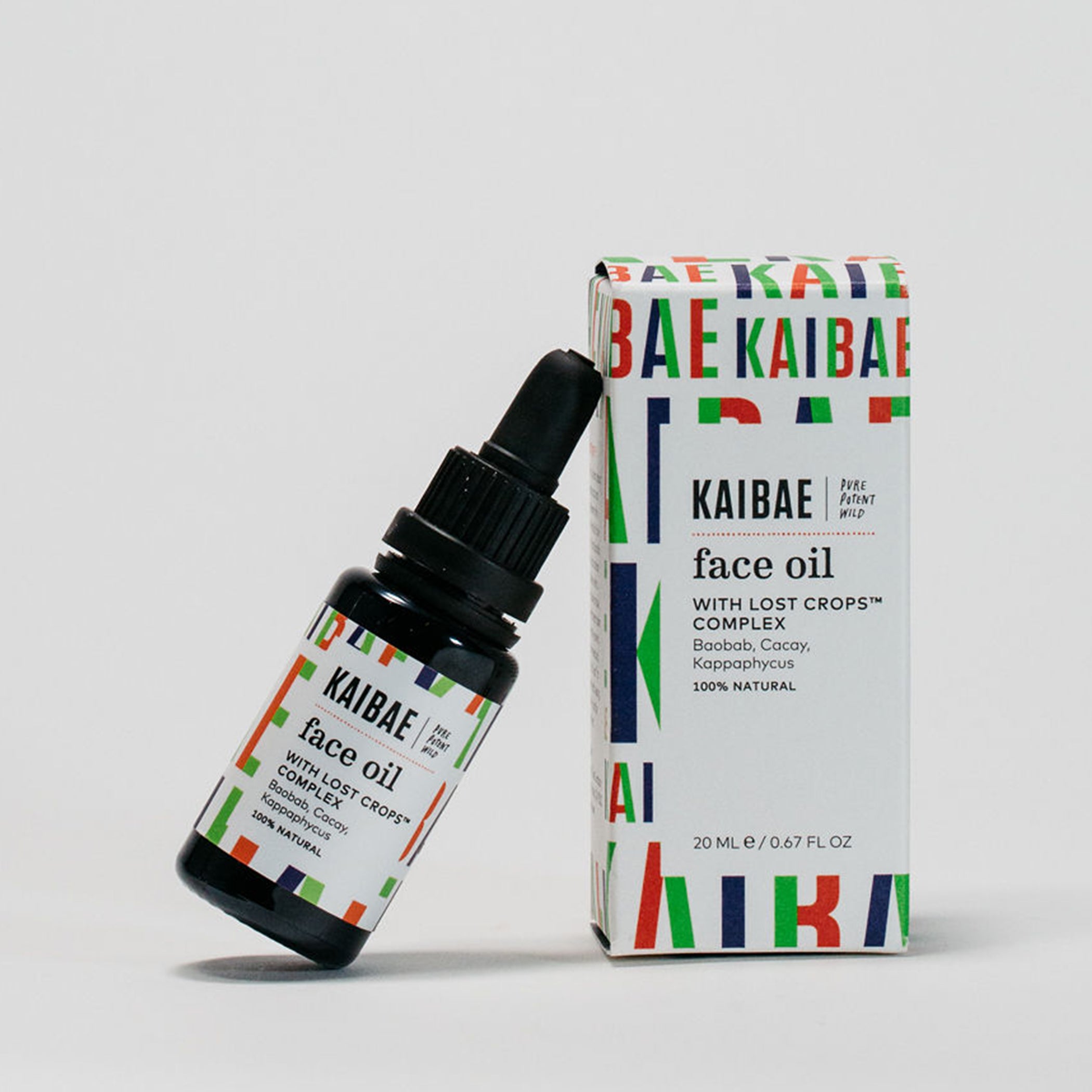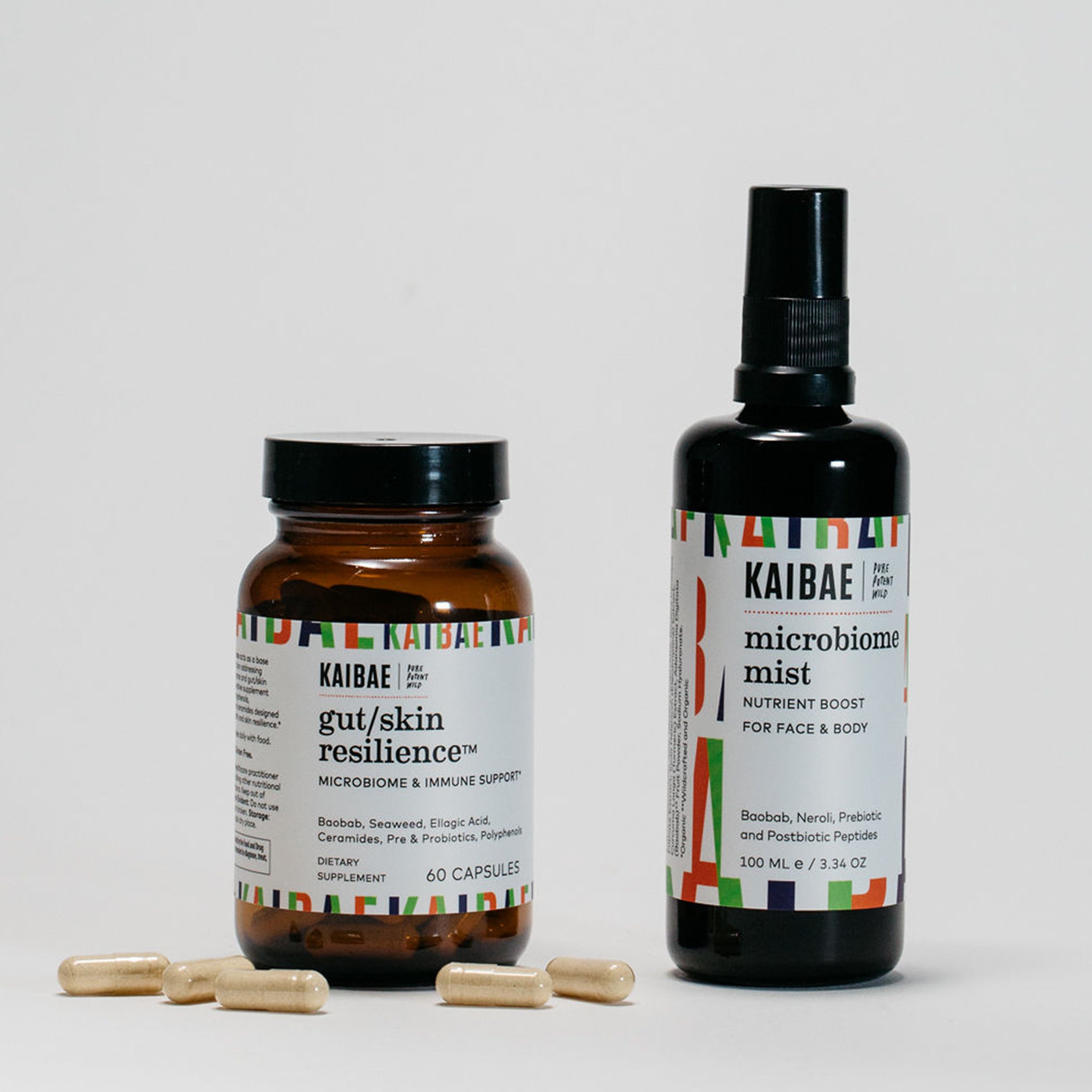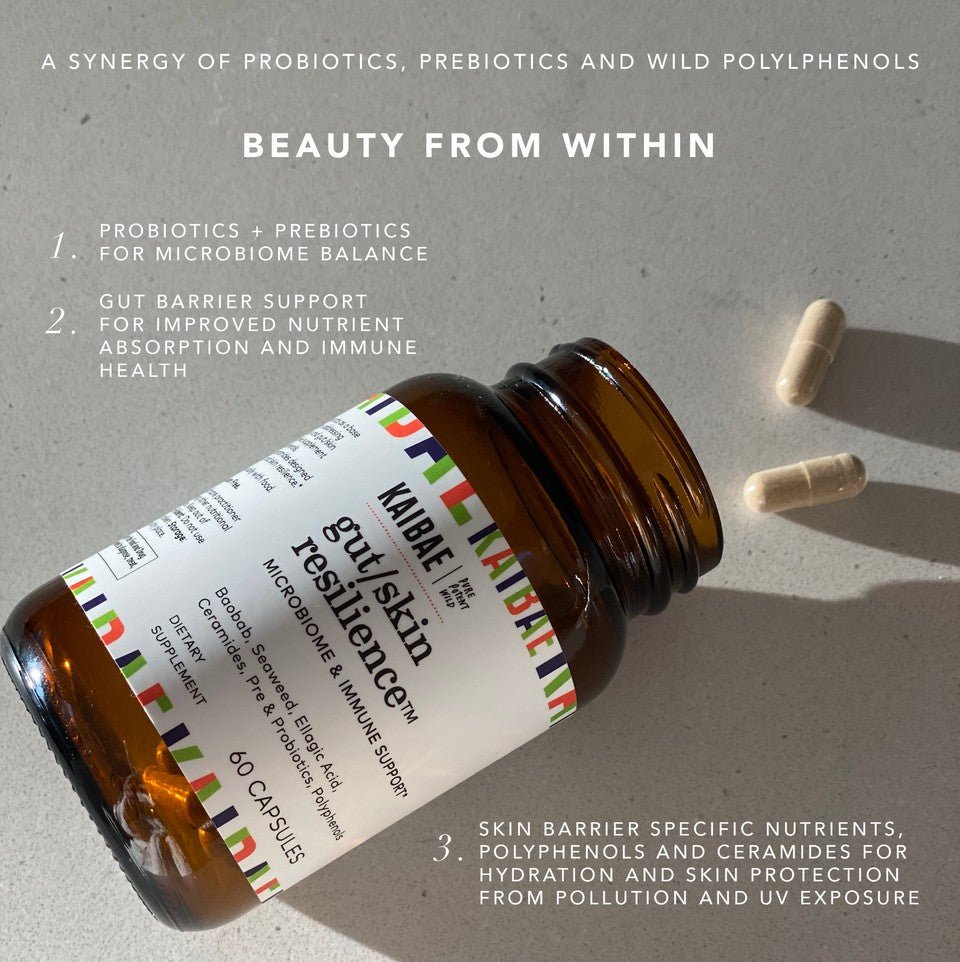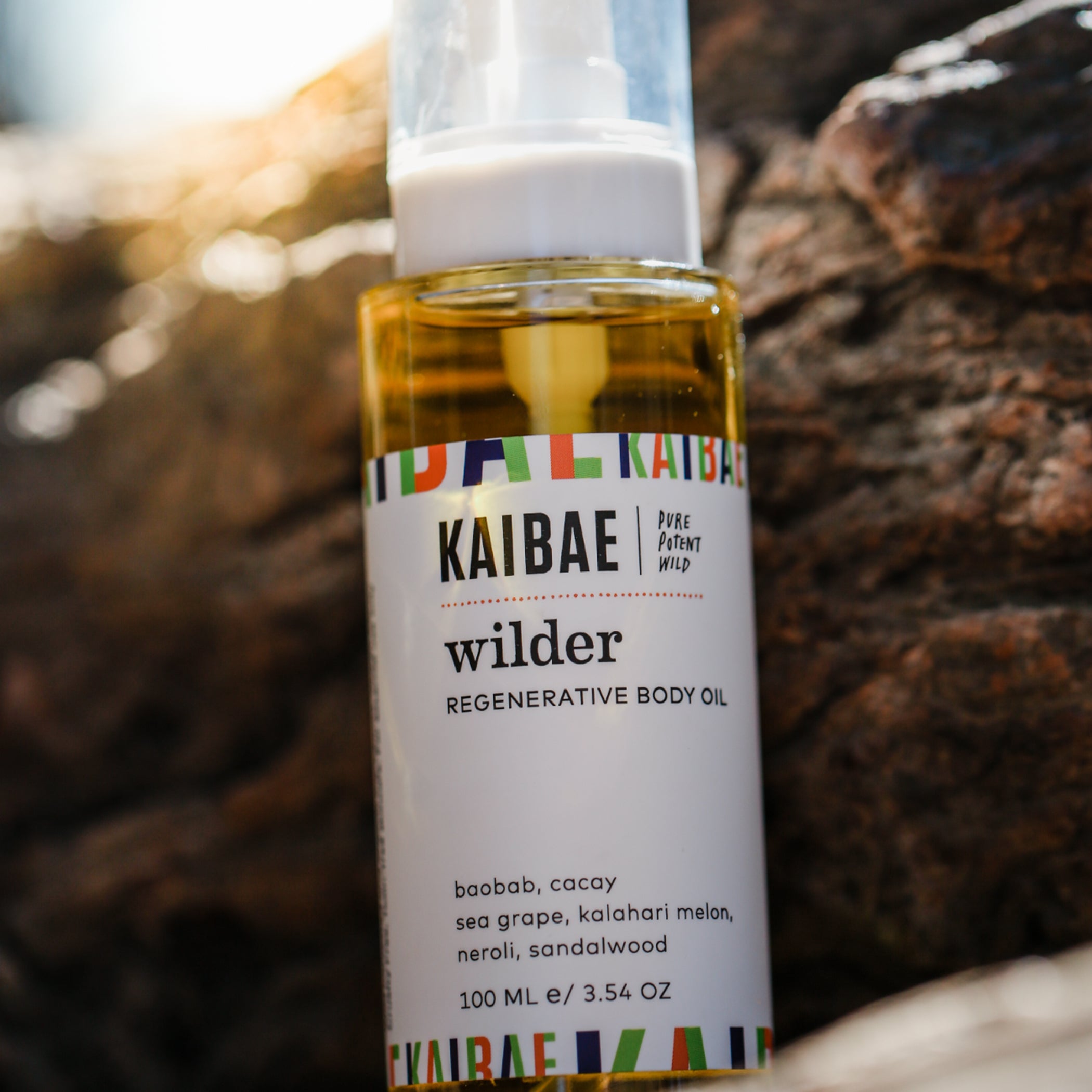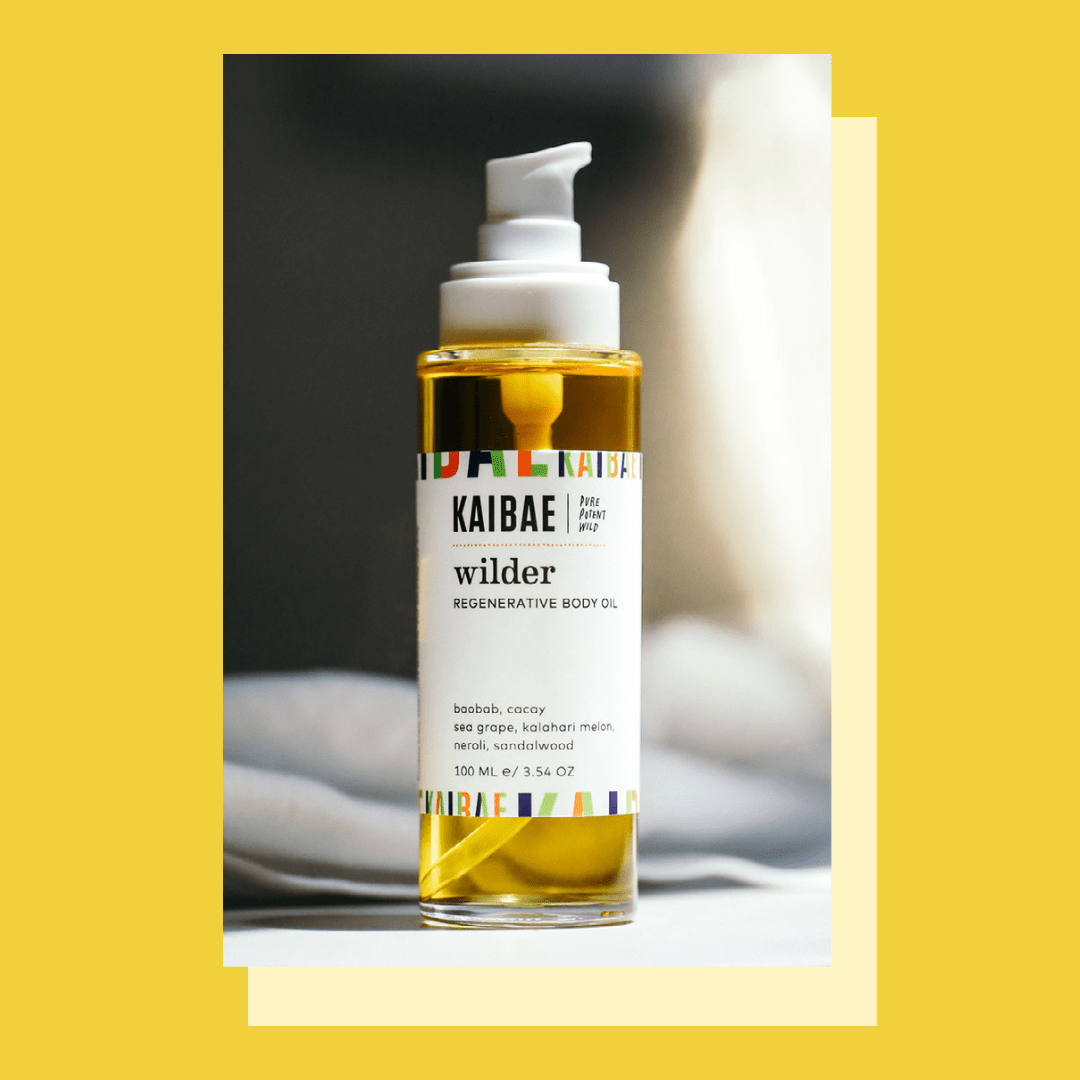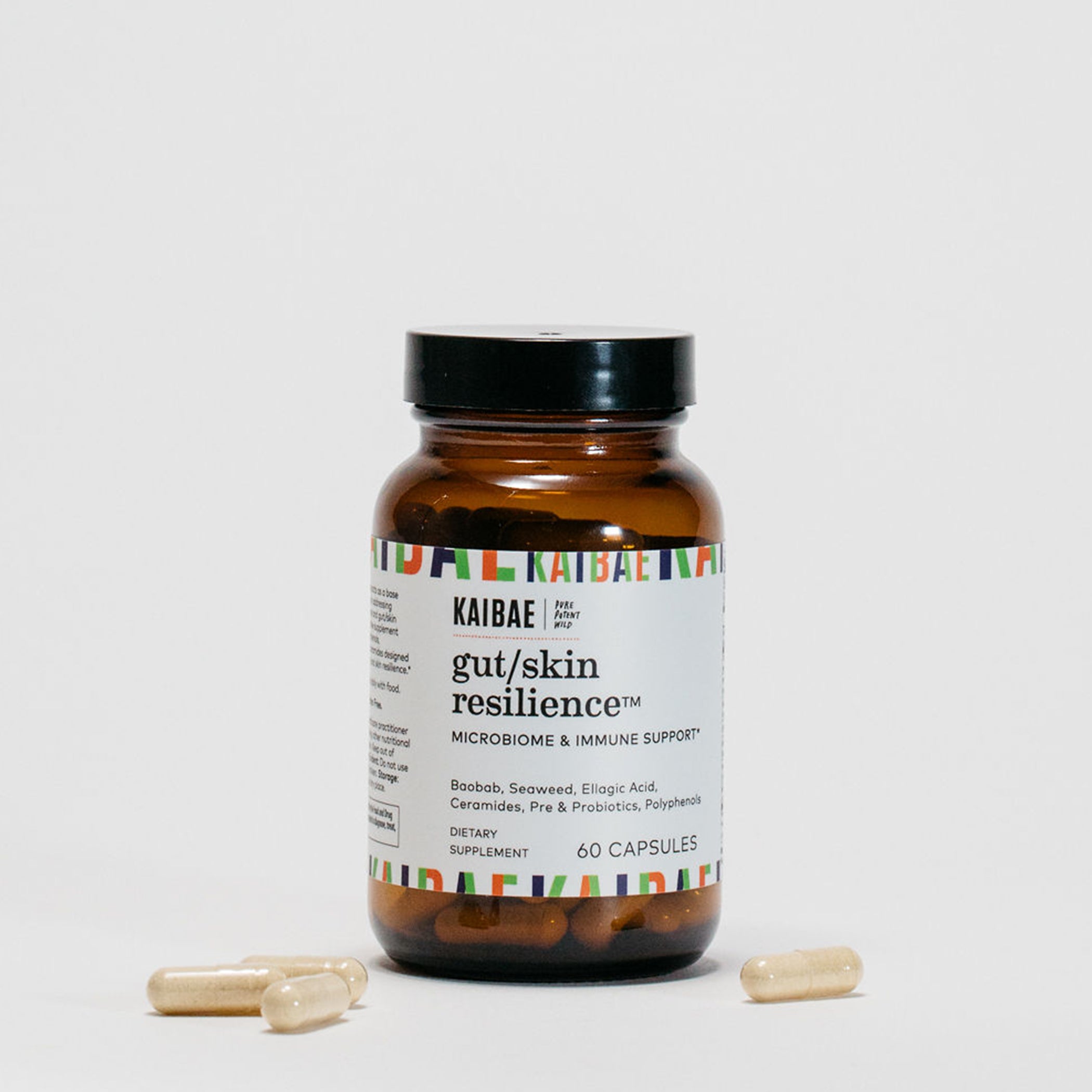Prebiotics vs Probiotics: Comprehensive Guide to Gut Health Benefits
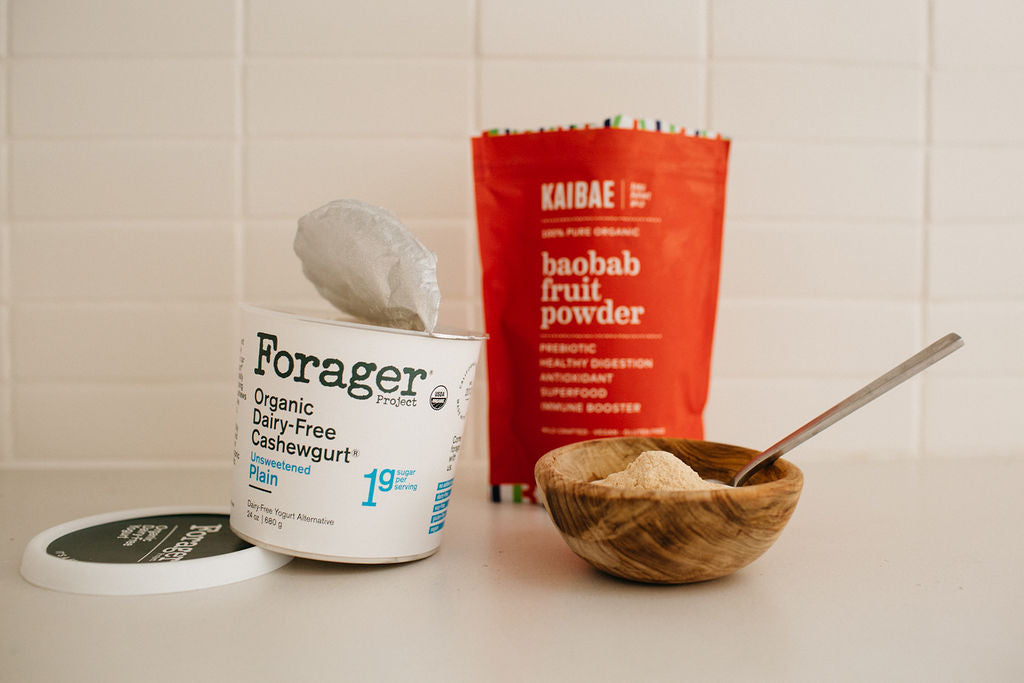
The world of gut health can be confusing, especially regarding prebiotics and probiotics. These terms often get mixed up, but both play a crucial role in maintaining a healthy digestive system.
In this blog, we address the difference between prebiotics and probiotics, explore their benefits for the gut microbiome, and show you how to incorporate them into your diet for optimal gut health. We will also introduce you to an ancient tree, the Baobab, Africa's Tree of Life, that produces a super fiber that may very well hold the key to improving gut-health, well-being, and longevity.
15 Amazing Health Benefits of Baobab Powder
What is the Gut Microbiome?
The gut microbiome refers to the vast community of microorganisms, including bacteria, viruses, and fungi in our digestive tract. These microorganisms play a crucial role in maintaining various aspects of health, including digestion. A healthy gut microbiome is balanced, with beneficial microorganisms keeping the harmful ones in check. Our body counts 30 trillion human cells and about 38 trillion bacteria.

Disruptions to this balance can be the result of antibiotics, poor diet, and stress, leading to digestive disorders, infections, and chronic diseases. Diets rich in fiber, fermented foods, probiotics, and prebiotics can promote a healthy microbiome.
What Is the Difference Between a Probiotic and a Prebiotic?
What Are Probiotics?
Probiotics are live microorganisms that provide health benefits when consumed in adequate amounts. Often referred to as the good or helpful bacteria, probiotics help maintain a healthy balance in your gut microbiome.
Sources of Probiotics:
Fermented foods are a rich source of nutrients, phytochemicals, bioactive compounds, and probiotics. They are functional foods that provide anti-inflammatory and immunomodulatory benefits. Some of these foods are thought to be synbiotic —meaning that they contain both prebiotic and probiotic bacteria.
Yogurt: Yogurt offers several digestive benefits due to its probiotic content. Yogurt contains live bacteria cultures, such as Lactobacillus and Bifidobacterium, which support a balanced gut microbiome.
Kefir is a fermented milk product that contains more than double the probiotics of yogurt. According to Kefir brand Lifeway. Kefir includes 12 live and active cultures and 25-30 billion Colony Forming Units (CFU). Yogurt can have anywhere from 1 to 5 strains with 6 billion CFU.

Sauerkraut is fermented cabbage that is very nutritious and a great source of probiotics and 1prebiotics and vitamins. Sauerkraut helps to increase good bacteria in your gut and can help to combat inflammation. The probiotics in sauerkraut can also help reduce bloating and may even help those with conditions such as Ulcerative Colitis.
Probiotic supplements come in many combinations and should meet individual needs. Different probiotic strains produce metabolites that have different effects on our health.
What are the Benefits of Probiotics?
Improved Digestive Health: Probiotics help maintain and restore a healthy balance of the gut and protect against the overgrowth of harmful bacteria. Certain probiotics, especially Lactobacillus and Saccharomyces boulardii, can help to reduce the duration and severity of diarrhea, including that caused by antibiotics. Probiotics can alleviate symptoms like bloating, gas, and discomfort in people with IBS.
Enhanced Immune Function : Probiotics can enhance the body's immune response by promoting the production of natural antibodies and stimulating immune cells. Regular consumption of probiotics may help to lower the risk of respiratory infections and urinary tract infections
Athletic Performance Lactobacillus plantarum TWK10, isolated from Taiwanese pickled cabbage as a probiotic, was demonstrated to improve exercise performance.
Mental Health Benefits Emerging research suggests that probiotics may influence mental health through the gut-brain axis. These probiotics are sometimes referred to as psychobiotics and can help reduce symptoms of anxiety, depression, and stress.
Skin Health: Probiotics may reduce the risk and severity of eczema in infants and children. They may also help manage certain allergic conditions. Some studies suggest that improving gut health can help improve skin conditions like acne by reducing inflammation.
Cardiovascular Health: Certain strains of probiotics can help lower total and LDL ("bad") cholesterol levels, which can benefit heart health.Some probiotics may help lower blood pressure, contributing to cardiovascular well-being
Weight Management: Probiotics, particularly strains of Lactobacillus gasseri, may help with weight loss and reducing belly fat. Probiotics may help reduce the risk of obesity by influencing gut bacteria associated with fat storage.
Nutrient Absorption: Probiotics make vitamins such as Vitamin K and B Vitamins.They also enhance the absorption of minerals like calcium, which is crucial for bone health.
Urogenital Infections: Probiotics may help reduce the risk of recurrent UTIs by promoting a healthy balance of bacteria in the urinary tract.
Oral Health: Probiotics may help support oral health issues such as gum disease and cavities by helping to balance the oral microbiome.

What are Prebiotics?
Prebiotics are dietary fibers that feed the friendly bacteria in your gut. Think of them as fertilizer for your gut's probiotic garden.
Types of Prebiotics
- Fructooligosaccharides (FOS) Onions, garlic, asparagus, wheat.
- Galactooligosaccharides (GOS): Lentils, chickpeas, beans.
- Inulin: Chicory root, Jerusalem artichoke, garlic, and leeks.
- Oligofructose: Bananas, onions, and garlic.
- Resistant Starch: Green bananas, potatoes, grains, and seeds.
- Pectin: Apples, citrus fruits, carrots, and Baobab fruit powder.
- Xylooligosaccharides (XOS): Corn cobs, bamboo, and milk.
- Beta-Glucans: Oats, barley, and mushrooms.
- Polyphenols: Plant compounds in fruits and vegetables.

Shop Baobab
The Benefits of Prebiotics
Improved Digestive Health: Prebiotics help promote the growth of beneficial bacteria like Bifidobacteria and Lactobacilli and help protect gut barrier integrity, which can improve digestion and reduce symptoms of bloating, constipation, and diarrhea.
Enhanced Immune Function: A healthy gut microbiome helps strengthen the immune system. A well-balanced gut flora is crucial for proper immune response and can reduce the risk of infections.
Better Absorption of Nutrients: Prebiotics enhance the absorption of minerals such as calcium, magnesium, and iron minerals that maintain bone health and overall well-being.
Reduced Risk of Chronic Diseases: Regular intake of prebiotics has been linked to a lower risk of chronic conditions such as obesity, type 2 diabetes, and cardiovascular disease by helping to maintain a healthy weight and reducing inflammation.
Improved Mental Health: Prebiotics can benefit mental health by influencing the gut-brain axis. A healthy gut microbiome is associated with better mood regulation and reduced anxiety and depression.
Weight Management: Prebiotics can help in weight management by promoting the feeling of fullness, reducing overall calorie intake, and supporting metabolism.
Enhanced Skin Health: A healthy gut microbiome, supported by prebiotics, may contribute to better skin health by reducing inflammation and improving conditions like eczema and acne.
Support for Heart Health: Prebiotics may help reduce cholesterol levels and maintain healthy blood pressure, contributing to better cardiovascular health.
Bone Health: Prebiotics enhance mineral absorption improve bone health and help in the prevention of osteoporosis through the gut-bone axis.
A Synbiotic Relationship: Prebiotics + Probiotics
When prebiotics and probiotics are combined, they form a powerful synbiotic relationship. Research shows that synbiotics are more effective than probiotics and prebiotics alone.
Baobab, the Prebiotic with Extraordinary Gut Health Benefits
Baobab powder is the rising star in the world of superfoods! Derived from the fruit of the Baobab tree, native to Africa, this superfood has been used for centuries in traditional medicine. The powder is rich in prebiotic fiber, polyphenols, vitamins, minerals, and antioxidants, making it a nutritional powerhouse. The combination of Baobab fruit powder's prebiotic fiber and polyphenols make Baobab powder exceptional with a multitude of gut, skin and immune health benefits!
Shop Baobab
Take Away
Diverse and plentiful gut bacteria are key for gut health. Prebiotics and probiotics work together to achieve a balanced gut microbiome. Prebiotic Fiber boosts a wide range of beneficial bacteria, while probiotics are more specific and may be to be integrated based on individual needs.
A healthy gut is the foundation of a healthy body. Baobab fruit powder is the prebiotic fiber of choice and provides wide-ranging benefits for gut health with its abundance of nutrients, especially its prebiotic fiber and polyphenols!
Please consult with a physician or other healthcare professional regarding any medical or health related diagnosis or treatment options. These statements have not been evaluated by the Food and Drug Administration. This product is not intended to diagnose, treat, cure, or prevent any disease.








